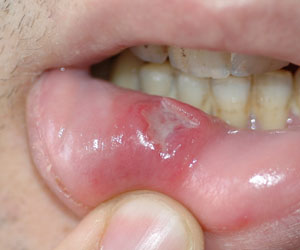
In Western medicine, Behcet's disease is a chronic relapsing systemic vasculitis of small and large vessels, of unknown etiology, characterized by recurrent oral and genital ulcers, and ocular inflammation. Other involved organs may include the joints, skin, and gastrointestinal tract, as well as the pulmonary, renal, central nervous, and the cardiovascular systems. The treatment of Behcet's disease is basically empiric, geared to control the symptoms, suppress the inflammatory process, and prevent organ damage. Thus, various anti-inflammatory and immunosuppressive agents have been used as the main therapeutic modalities, although none of them has been effective in controlling the diverse symptoms.
Earlier, these drugs included colchicine, azathioprine, systemic corticosteroids, dapsone, cyclosporine A, and tacrolimus. Recently emerging studies show the effectiveness of thalidomide, interferon alpha, interferon gamma, acyclovir, low-dose weekly methotrexate, cyclophosphamide pulse therapy, and anti-tumor necrosis factor therapy. Anti-TNF agents, such as infliximab, are emerging as being effective in rapid control of sight-threatening panuveitis and cerebral vasculitis, as well as in orogenital ulcerations, gastrointestinal disease, and skin lesions of Behcet's disease.